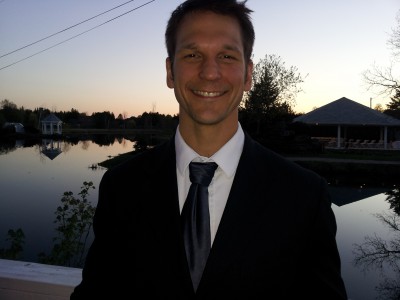Policy Analyst
Health Canada
 |
After completing the Bachelor of Humanities in 2001, I began a varied career in the public service. I have worked in five federal Departments in a number of very different roles.
I began with a brief stint with Immigration Canada, where, as an Inland Officer, I investigated immigration cases (e.g. working without permits, criminal inadmissibility, people smuggling, etc.), and deported serious criminals.
When the excitement of that job had worn off, I returned to Carleton in 2003 to begin my Masters in International Affairs at the Norman Paterson School of International Affairs (NPSIA). My research there focussed on international security, military ethics, and civil and human rights issues, with particular bends towards some of the rights issues I had encountered while at Immigration Canada.
During this time, I also worked as a Research Assistant for the federal War Crimes program, where I gathered evidence for the prosecution of alleged war criminals who had subsequently entered Canada.
After graduating from NPSIA in 2005, I took a short contract at the national Operations Centre, the nerve centre of federal response to national security incidents and natural disasters. My role in the intricate machinery of this exciting organization was to prepare policies, procedures, reports, etc. for the people who managed the response to these incidents. I was essentially the nerdy, annoying jerk of Hollywood disaster films who’s always insisting that everything be done by-the-book, and impeding the progress of the hero from saving the day.
This was followed by a couple of years at the Canadian Intellectual Property Office, where I supported their international program, conducting economic and policy analyses, preparing briefings for senior officials, and developing projects to increase the presence and effectiveness of Canada’s patent and trade mark systems abroad.
In 2008, I began my most recent position, at Health Canada, where I analysed and provided advice on a range of bioethics issues for the federal government. My work there involved the in-depth study of pressing ethical issues in the context of health care and health research, and working within the government and with non-governmental and international organizations to develop solutions. These are very sensitive, important issues that affect us all — paediatric research ethics, genetic discrimination, organ trafficking, the potential social impacts of emerging technologies (nano, synth-bio, neuroscience, etc.), and end-of-life decision-making, to list a few.
In 2014 my wife was posted to Bogota, Columbia, through the Department of Foreign Affairs. I am currently on a leave of absence from the Public Service in order to be with her there.
How did the Bachelor of Humanities help get me where I am today? Well, the philosophy that we studied was definitely relevant in my most recent position, where I regularly conducted analyses of health policy issues within the pluralist, normative framework of Canadian and international legal and policy instruments, which are heavily influenced by humanist philosophy, Kantian ethics, and human rights theory.
But, for me, the B.Hum was not just a means to a job. True, the analytical skills that I learned there provide the basis of a great skill-set for a range of career paths, which helped me in graduate school and in the working world. But I found that its real value was the educational experience itself.
My education in the College of the Humanities had a long-lasting, profound impact on my life. The works of literature and philosophy that I studied explored timeless issues and challenges at the core of humanity. We didn’t just read about the great works, we actually read them, thought about them ourselves, wrote papers that articulated our thoughts, and discussed them with bright, inquisitive, creative people (the excellent students and professors who make up the College).
It wasn’t about a check-list of great books that cultured people ‘should’ read, but rather about a true exploration of the ideas within those books, and a reflection on many of the challenges of the human condition. You don’t leave the Bachelor of Humanities with the answers to life’s big questions, but you do leave with the knowledge, the tools, and the confidence to continue to ask the important questions continually throughout your life, and in all of its facets.
I found that the challenging curriculum and supportive environment of the B.Hum nurtured my intellectual curiosity, which has contributed to my lasting interests in diverse fields, and given me the courage to pursue new professional challenges. Its focus on the importance of forming one’s own thoughts (rather than relying on authoritative commentaries or secondary sources) has remained with me throughout my career, which is invaluable in conducting research, analysis, and in providing prinicipled and pragmatic advice.
The B.Hum was a great experience for me, and I would recommend it to anyone with an intellectual curiosity, love of learning, and lust for life.
Mike Halucha was most recently a Policy Analyst at Health Canada